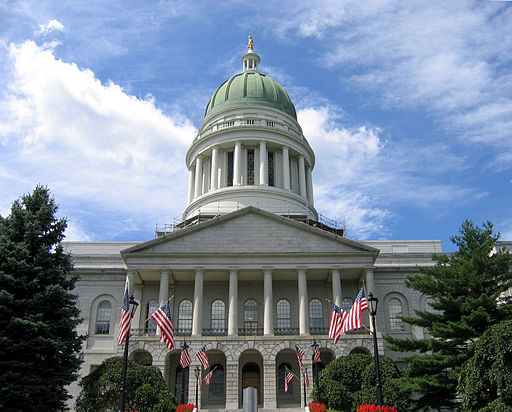On Jan. 26, 2023, the Maine secretary of state announced that enough valid signatures were submitted for an initiative that would require voter approval of borrowing above $1 billion by state entities and electric cooperatives. The initiative is now certified to the Maine State Legislature. If the Legislature does not approve the initiative, it would appear on the Nov. 2023 ballot.
Out of the 93,000 signatures submitted by the No Blank Checks campaign, 68,807 signatures were found to be valid. In Maine, the signature requirement is currently 67,682 valid signatures. This number is calculated as 10% of the total votes cast at the previous gubernatorial election.
The No Blank Checks initiative could be on the ballot alongside an initiative to create a consumer-owned electric utility. In Oct. 2022, the Our Power campaign, which supports the Pine Tree Power Company initiative, submitted more than 80,000 signatures to the secretary of state, and 69,735 of those signatures were verified. The initiative would create a municipal consumer-owned electric transmission and distribution utility called the Pine Tree Power Company, which would replace Central Maine Power (CMP) and Versant. Our Power Maine stated, “The company’s purposes are to provide for its customer-owners in this State reliable, affordable electric transmission and distribution services and to help the State meet its climate, energy and connectivity goals in the most rapid and affordable manner possible.” The campaign opposing the initiative, the Maine Affordable Energy Coalition, said that the initiative would result in higher electric bills. The coalition said, “A scheme to seize Maine’s electric grid by eminent domain would create a government-controlled utility — and we would all be on the hook for the cost.”
No Blank Checks campaign said, “A proposal is being circulated that would authorize seizing the state’s electric utilities, creating billions of dollars in debt we would all have to pay off through our electric bills. The people pushing this proposal can’t say exactly how much it would cost, and they are asking us to write a blank check. Voters should know the price tag and get a chance to vote on that debt first.”
In Maine, a citizen initiative can only appear on the ballot as an indirect initiative. The initiative only goes to the ballot if the legislature rejects the initiative or does not take action by the end of the session. If the legislature passes the initiative, and the governor signs it, the initiative becomes law.
There were no measures on the Maine ballot in 2022. The last indirect initiative to appear on the ballot was in 2021, when voters approved an initiative to prohibit the construction of electric transmission lines in the Upper Kennebec Region.
So far, there are no ballot questions on the 2023 Maine ballot. Besides the No Blank Checks initiative and the Pine Tree Power Company initiative, there are two other initiatives that have a chance of appearing on the ballot in 2023. One initiative would prohibit foreign spending in elections in Maine and is currently certified to the Legislature, and the other, which is awaiting signature verification from the secretary of state, would allow for vehicle owners and independent repair facilities access to vehicle on-board diagnostic systems.
If the state legislature rejects or does not take action on the submitted initiatives, they will go to Maine voters at the election on November 7, 2023.
Additional reading:


